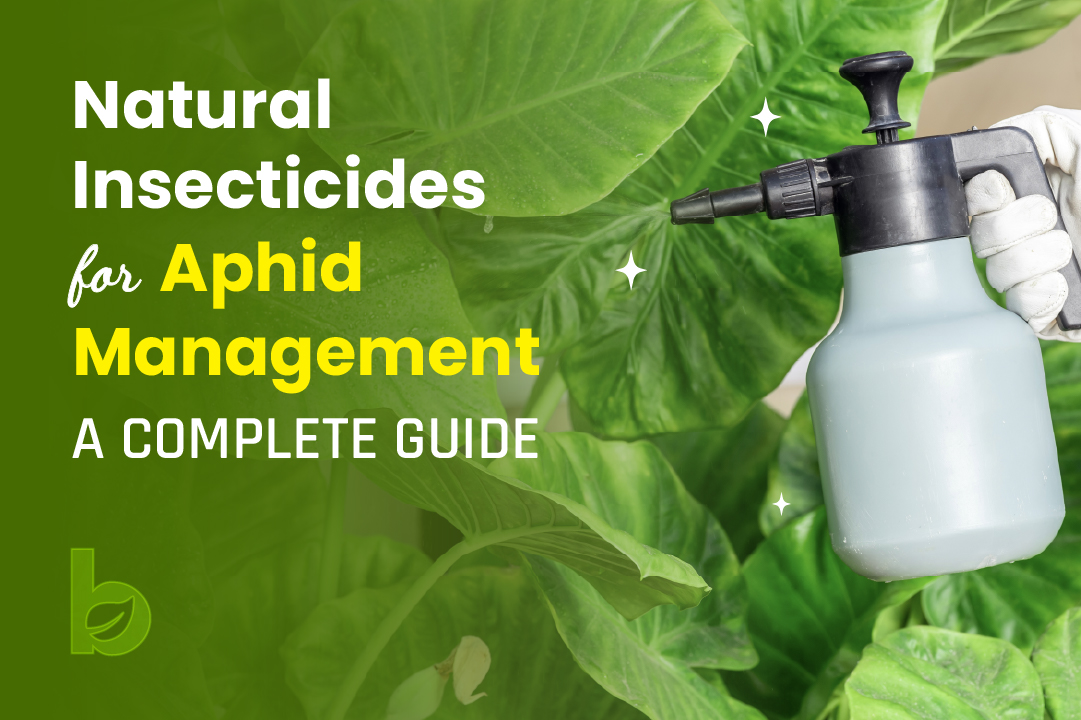
Understanding Aphids: The Tiny Garden Invaders
Aphids, often referred to as "plant lice," are small, soft-bodied insects that feed on the sap of plants. These pests can cause significant damage to gardens by stunting plant growth, causing leaves to yellow and curl, and transmitting plant diseases. Recognizing an aphid infestation early is crucial for maintaining a healthy garden.
Common Signs of Aphid Infestation
- Curling Leaves: Aphids feeding on plant sap can cause leaves to curl or become distorted.
- Sticky Residue: Known as honeydew, this sticky substance excreted by aphids can lead to sooty mold growth.
- Presence of Ants: Ants are attracted to the honeydew produced by aphids and may protect them from predators.
The Importance of Natural Aphid Control
While chemical pesticides can effectively eliminate aphids, they often harm beneficial insects and disrupt the ecological balance of your garden. Natural insecticides offer a safer alternative, targeting aphids while preserving beneficial organisms like ladybugs and lacewings. Additionally, natural methods reduce the risk of chemical residues on edible plants, ensuring a healthier garden environment.
Top Natural Insecticides for Aphid Management
Implementing natural aphid control methods can be both effective and environmentally friendly. Here are some proven strategies:
1. Neem Oil: The Versatile Botanical Extract
Neem oil, derived from the seeds of the neem tree, is a powerful natural insecticide. It contains azadirachtin, which disrupts the hormonal systems of aphids, inhibiting their growth and reproduction.
Application:
- Mix: Combine 2 tablespoons of neem oil with 1 gallon of water and a few drops of mild dish soap.
- Spray: Apply the solution to affected plants, ensuring thorough coverage, especially on the undersides of leaves.
- Frequency: Repeat every 7-14 days until the infestation is under control.
Benefits:
- Safe for Beneficial Insects: When used correctly, neem oil minimally impacts non-target species.
- Biodegradable: It breaks down quickly in the environment, reducing long-term residue concerns.
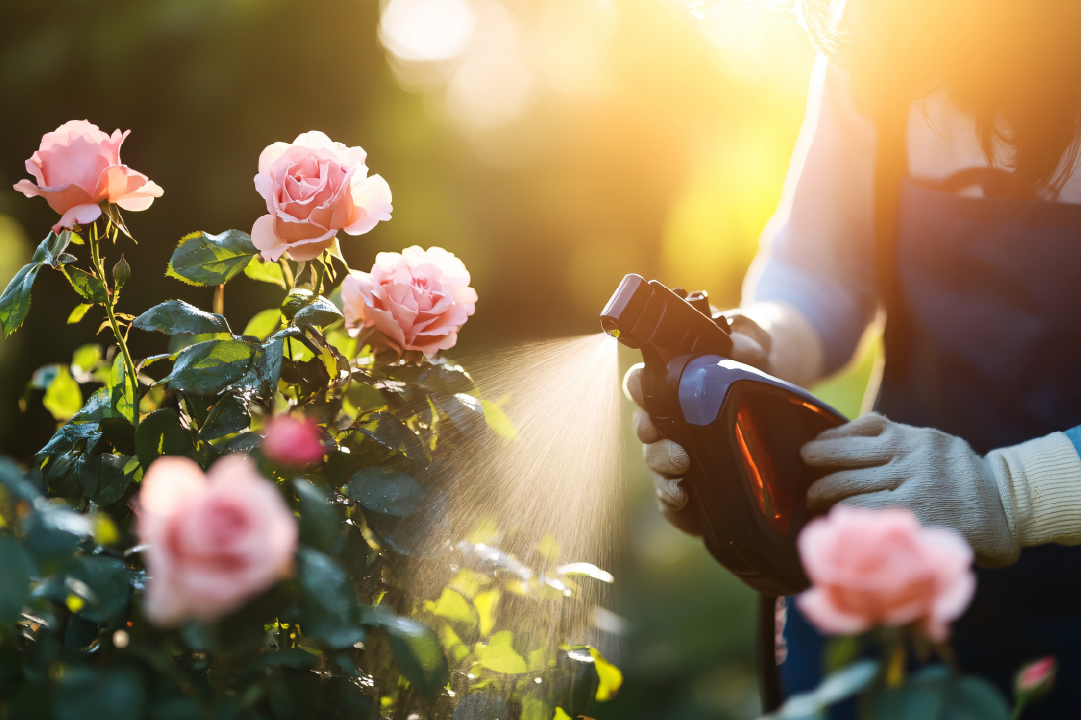
2. Insecticidal Soap: The Contact Killer
Insecticidal soaps are formulated to penetrate the soft outer shells of aphids, causing cell collapse and dehydration. They are effective against aphids and have minimal impact on beneficial insects when applied correctly.
Application:
- Spray: Directly apply the soap solution to aphid colonies, ensuring contact.
- Timing: Use during cooler parts of the day to prevent plant tissue damage.
- Frequency: Reapply every 4-7 days as needed.
Benefits:
- Low Residue: Leaves little to no harmful residue on plants.
- Safe for Edibles: Suitable for use on vegetables and herbs when following label instructions.
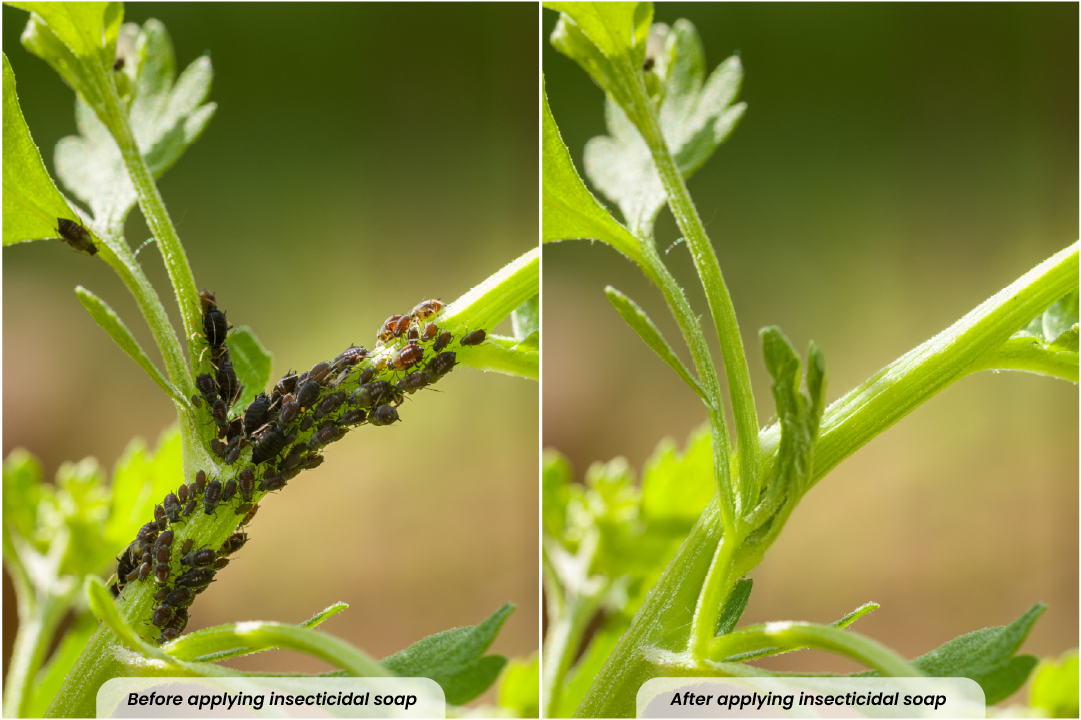
3. Diatomaceous Earth: The Mechanical Insecticide
Diatomaceous earth (DE) is a natural powder composed of fossilized aquatic organisms. Its abrasive particles damage the exoskeletons of aphids, leading to dehydration and death.
Application:
- Dusting: Lightly dust plants with food-grade DE, focusing on areas with aphid activity.
- Reapply: After rain or heavy watering, as moisture reduces its effectiveness.
Benefits:
- Non-Toxic: Safe for humans and pets when using food-grade DE.
- Broad-Spectrum: Effective against various soft-bodied insects.
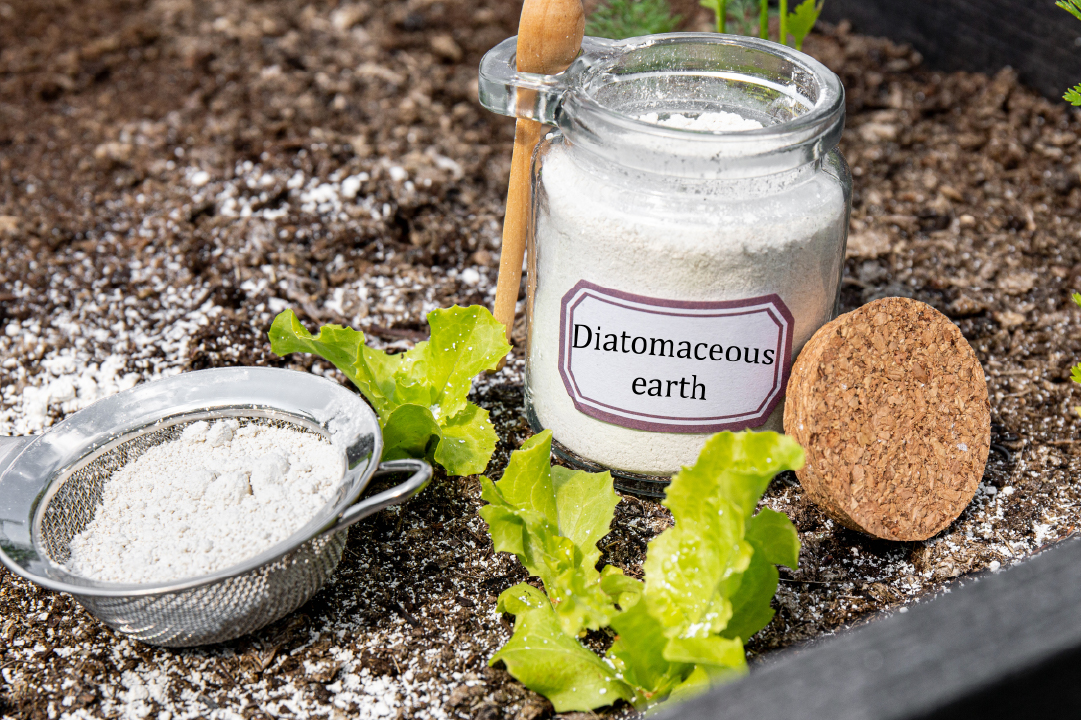
4. Essential Oils: Aromatic Deterrents
Certain essential oils, such as peppermint, clove, and rosemary, act as natural repellents to aphids. Their strong scents interfere with the aphids' ability to locate host plants.
Application:
- Mix: Combine 10-15 drops of essential oil with 1 quart of water and a few drops of dish soap.
- Spray: Apply to plants, focusing on areas where aphids are present.
- Frequency: Use every 5-7 days or after rainfall.
Benefits:
- Pleasant Aroma: Leaves a refreshing scent in the garden.
- Dual Purpose: Some oils also have antifungal properties.
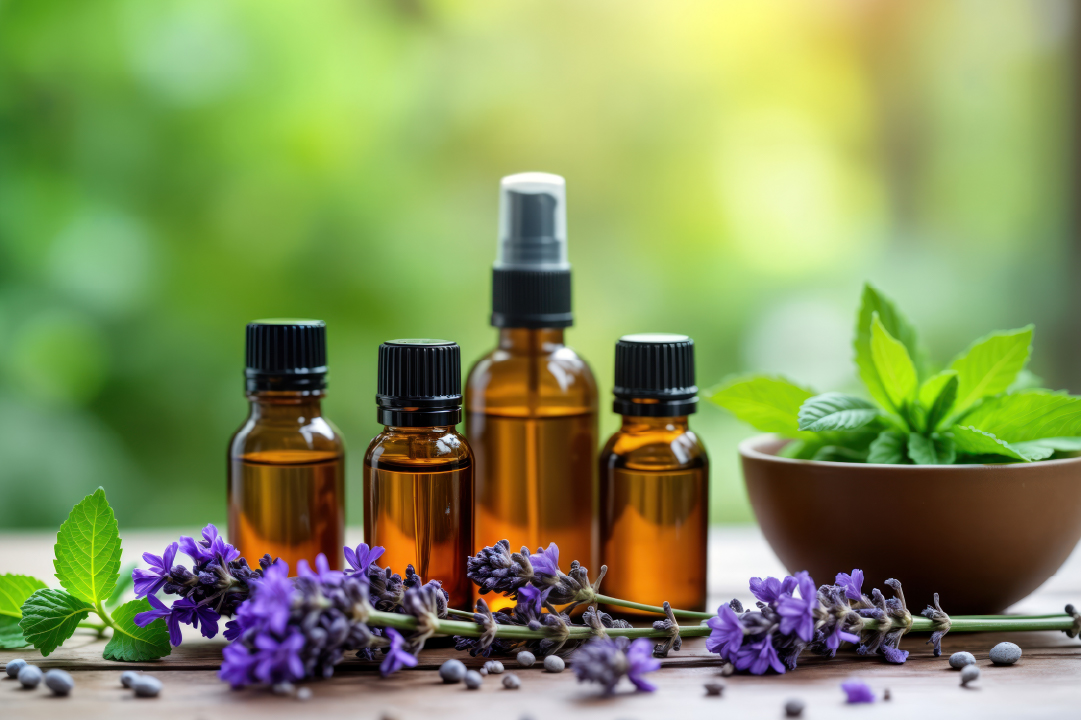
5. Garlic and Chili Spray: The Spicy Solution
A homemade spray using garlic and chili can deter aphids due to its pungent properties. This mixture creates an inhospitable environment for aphids without harming plants.
Application:
- Prepare: Blend 10 cloves of garlic and two chili peppers with 1 liter of water. Strain and add a few drops of dish soap.
- Spray: Apply to infested plants, especially the undersides of leaves.
- Repeat: Every 5-7 days for best results.
Benefits:
- Non-Toxic: Safe for vegetables, fruits, and herbs.
- Repels Multiple Pests: Effective against aphids, caterpillars, and whiteflies.
Additional Natural Methods for Aphid Control
While aphids control pesticides like neem oil and insecticidal soaps work wonders, combining them with cultural and biological control methods can enhance their effectiveness.
Encourage Beneficial Insects
Ladybugs, lacewings, and hoverflies are natural predators of aphids. Planting flowers like marigolds, daisies, and fennel attracts these helpful insects to your garden.
Companion Planting
Some plants naturally repel aphids. Try planting:
- Garlic and Onions: Their strong scent deters aphids.
- Mint and Basil: Repel aphids and enhance the flavour of your harvest.
- Nasturtiums: Act as a sacrificial plant, attracting aphids away from your vegetables.
Regular Pruning and Inspection
Early detection is key! Regularly check the undersides of leaves and remove aphid clusters manually if possible.
FAQs
1. What is the most effective natural insecticide for aphids?
Neem oil is one of the most effective natural insecticides for aphid control. It disrupts their reproductive cycle and is safe for beneficial insects when applied correctly.
2. How often should I apply natural aphid control treatments?
It depends on the severity of the infestation. Most treatments require reapplication every 5-14 days to ensure long-term aphid control.
3. Can I use dish soap to kill aphids?
Yes! A mild dish soap solution (a few drops in a liter of water) can break down the outer layer of aphids, causing them to dehydrate. However, avoid soaps with harsh chemicals that may harm plants.
4. Do natural insecticides harm pollinators like bees?
Most natural insecticides, such as neem oil and insecticidal soaps, are safe for pollinators when applied correctly. Always spray in the early morning or late evening to minimize bee exposure.
5. How can I prevent aphids from coming back?
To keep aphids away:
- Encourage beneficial insects
- Use companion planting
- Apply preventive sprays like neem oil or garlic-chili spray
- Inspect plants regularly and remove aphids by hand when possible
The Best All-in-One Natural Aphid Control Solution
If you're looking for a ready-to-use, effective, and safe aphid control solution, DeHaat Bageecha Health 360 is the perfect choice. Made from 100% natural ingredients, this spray effectively repels aphids while keeping your plants safe and healthy.
Why Choose Health 360?
- 100% Natural & Safe – No harmful chemicals
- Effective Against Aphids & Other Pests – Works on whiteflies, mites, and more
- Easy to Use – Just spray and protect your plants
Say goodbye to aphids naturally! Try DeHaat Bageecha plant care essesntials today and give your plants the protection and growth they deserve.
By using natural insecticides for aphid management, you can protect your garden while preserving the environment. With these safe and effective methods, your plants will thrive without the need for harsh chemicals!



